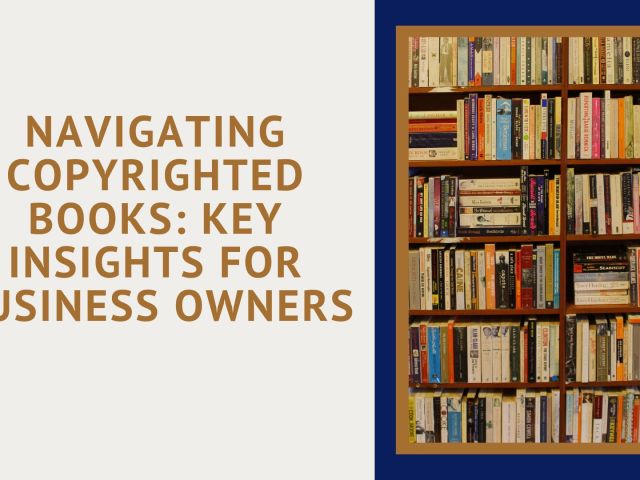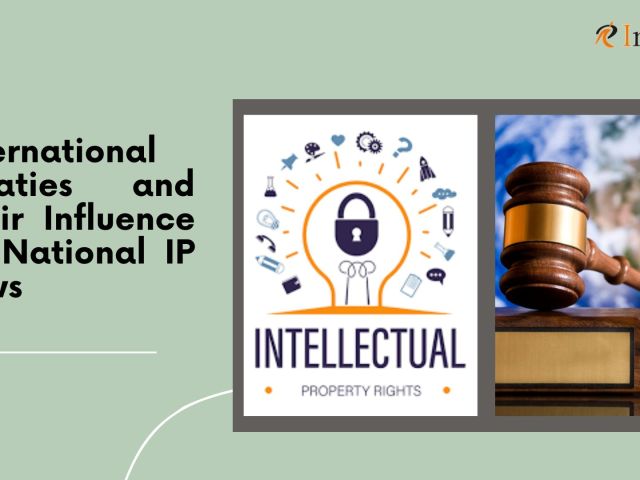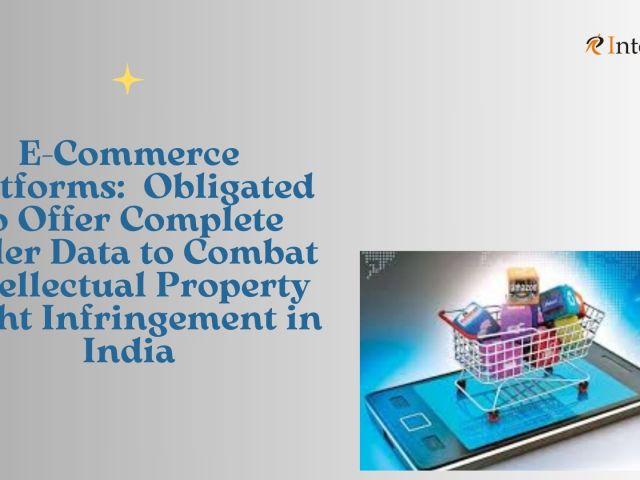Introduction
With the explosion of the internet in the early 2000s, dissemination of information is easier, all the more convenient, and is quite literally, child’s play. Content online has provided better access to consumers in general. It also allowed researchers, educators, artists, and the like a more viable and cost-effective way to expand their markets at an exceedingly faster rate. However, it opens the gateway to anonymous pirates to duplicate copyrighted works and disseminate them online. Due to the fact that it is not practicable for copyright owners to detect and fine-tooth comb all the individual users, copyright owners depend on and hold liable the internet intermediaries that allow pirated works to exist. Internet intermediaries can be liable for contributory copyright infringement. According to Section 51 (a) (ii) of the Copyright Act, 1957 (hereinafter ‘the Act’)contributory infringement occurs when a person who instigates or induces another to directly infringe a copyright will be liable for contributory infringement, provided the infringer had the knowledge of such infringement or has reason to know about it. The infringer must have included or encouraged the direct infringer or has materially (not remotely or incidentally) contributed to the primary infringement. Internet intermediaries can thus be held liable for the same.
However, the Information Technology Act, 2000 (‘IT Act’) provides conditional immunity to Internet intermediaries by virtue of the safe harbour principle. Section 79 of the IT Act provides that internet intermediaries are immune to all laws, provided the intermediary has not abetted, aided, or induced the commission of an unlawful act or, if on receiving knowledge or ‘on being notified by the appropriateGovernment or its agency that any information, data or communication link residing in or connected to a computer resource’, that is in control of the intermediary is used to commit an unlawful act and the intermediary fails to remove access to the material on that resource. In other words, intermediaries are immune from facing prosecution for copyright violations so long as they adhere to the conditions mentioned in Section 79 of the Act. Granted the growth of the internet, the cases of intermediary infringers have increased in the recent past. It is only prudent that the internet intermediaries are given some level of respite and immunity as they are only dormant carriers of information. At the same time as noted above, the ease with which copyright works can be infringed on the internet, it is also imperative that they are also put in check. This balance must be maintained by the courts and legislators.
Judicial View
Courts have dealt with the question of intermediary liability, although not as comprehensive as the USA or the EU. In the case of My Space Inc. v. Super Cassettes Industries Ltd., the appellant owned an online platform that enabled users to upload and exchange content and the respondent was an audio and video cassette production music company. The appellant offered the respondent the registration for its Rights Management Tools. The respondent found infringing content on the appellant’s website. It contended that even after sending a notice to the appellant to remove the content, the appellant did not comply. On being granted interim injunction the appellant approached the Delhi High Court. The appellant contended that it was immune as per Section 79 of the IT Act. It contended further that Section 79 should be read with Section 81 which provided the IT Act is to have an overriding effect over other laws that are inconsistent with it. The court held that Sections 79 and 81 of the IT Act and Section 51 (a) (ii) of the Act must be construed harmoniously and not pitted against each other. It also held that the intermediary must have actual or constructive knowledge of the infringing content to disqualify it from claiming immunity under the safe harbour principle. General awareness or even an apprehension that an unlawful activity is being carried out on its platform is not sufficient to constitute contributory infringement. Furthermore, in the present case existence of user agreements that prevent the users from uploading unauthorized content, post infringement mechanisms that deal with such content, and the fact that around 10000 copyrighted songs were shared with the appellant it is not pragmatic to expect them to detect any and all possible infringements in relation to the songs. For these reasons, the Court held that the appellant is not liable.
This holding stands out as a landmark case, wherein the Court adeptly delineated what constitutes ‘knowledge’ and what does not. As noted above it is essential to maintain the balance between not placing the burden of liability on intermediaries, and not letting them scot-free for the maintaining infringing material on their platform.
In the case of Kent RO Systems Ltd v. Amit Kotak &Ebay India Pvt. Ltd, the Delhi High Court further extended the ratio laid down in the case of My Space and held that the intermediaries are not required to make judgments as to the infringing products sold on its website but rather must take action on the filing of a complaint by the copyright owner.
In the case of Fermat Education v. Sorting Hat Technologies Pvt. Ltd., the High Court of Madras, the respondent even after furnishing a complaint to take down the infringing material on its platform did not do so, and therefore it was held that it amounted to contributory infringement. It also held that the respondent is not an intermediary as per Section 2 (w) of the IT Act. Section 2 (w) defines an intermediary as ‘any person who on behalf of another person receives, stores or transmits that record or provides any service with respect to that record’. The Court observed that the respondents allowed users to create content and publish them. Hence it was not an intermediary as per Section 2 (w) of the Act. The court perceptively observed what an intermediary is. In doing so it prevents misuse of the safe harbour principle and ensures that copyright owners are permitted to enforce their rights.
In the case of Christian Louboutin Sas v. Nakul Bajaj and Ors., the respondents were listing counterfeit products on its e-commerce platform Darveys.com, using the name and image of the appellant. The appellant alleged that traffic was directed to the respondent’s website using the meta tags ‘Christian’ and ‘Louboutin’ which may lead the average consumer to believe that the counterfeits are from the appellant. The appellant pleaded that this would amount to passing-off and would result in the dilution of the brand. The respondents contended that they were only intermediaries as they were facilitating online booking of orders that were placed by consumers and hence would be covered by the safe harbour principle. The Delhi High Court held that the respondents’ e-commerce platform it had complete control over the products being sold, had the ability to identify the sellers, and was promoting the products sold by the sellers. In such a case it transcends the boundaries as an intermediary set by the IT Act and cannot claim immunity under the safe harbour principle. It held that when ‘e-commerce websites actively abet or aid in the commission of unlawful acts it crosses the line from being a mere intermediary to an active participant. If such practices by e-commerce websites are allowed protection, then this would lead to brand dilution, exploiting the safe harbour principle. Although this present case did not deal with copyrights, it, however, laid down an important precedent for the protection of intellectual property by intermediaries and followed a liberal interpretation contradicting the Fermat education case.
Conclusion
Courts have consistently ensured that the balance of interests has been maintained while adjudicating the issue. However, some issues still persist. Intermediaries and their regulation vis-à-vis copyrights need to be addressed more extensively by the Copyright Act, of 1957. The Act does not deal with the issue of intermediaries at all. The Intermediary Guidelines, 2021 certainly shows some intent to make progress in addressing the issue at least when juxtaposed with its 2011 predecessor. But at the same time, it creates additional problems coterminous to proposing solutions to problems. Issues of free speech and the right to privacy are not sufficiently addressed. The guidelines provide that intermediaries must appoint a grievance officer and must take down the material via court order. This brings the government into the equation and raises reasonable concerns with respect to the privacy of the information on the intermediaries’ platform. These issues certainly have an impact on the protection of copyrights by intermediaries, as forthcoming laws and rules must take all these concerns into account. The rules governing intermediaries and the obligations that lawsimpose on them, incidentally have an impact on the particular instances where the safe harbour principle can be claimed and when it cannot, the grievance mechanism available, and the like. In any case, the balance of interests and copyright holders must be maintained, at every stage of amendment brought to the laws governing it.
*Written by Jonah Jesuraj Sanctus, Legal Intern @Intepat IP




